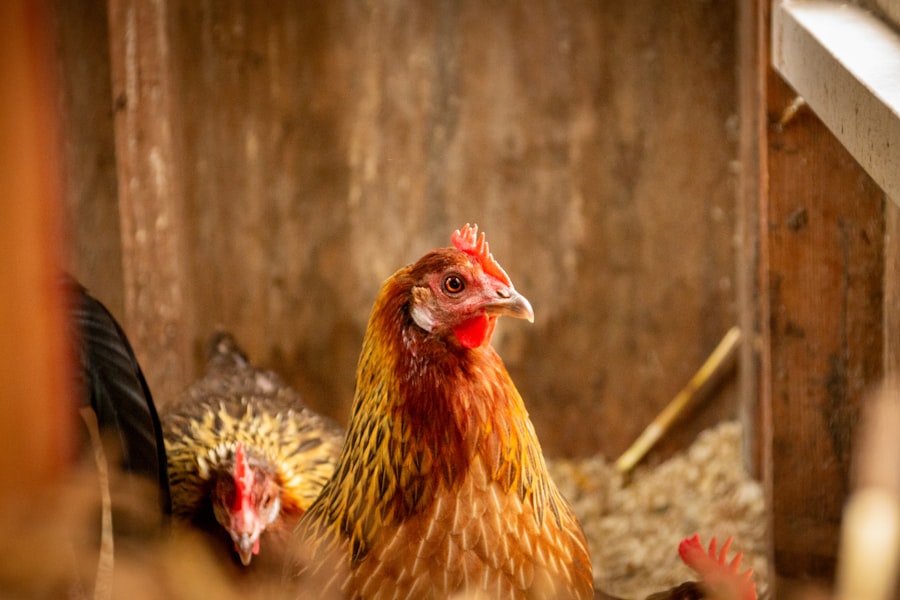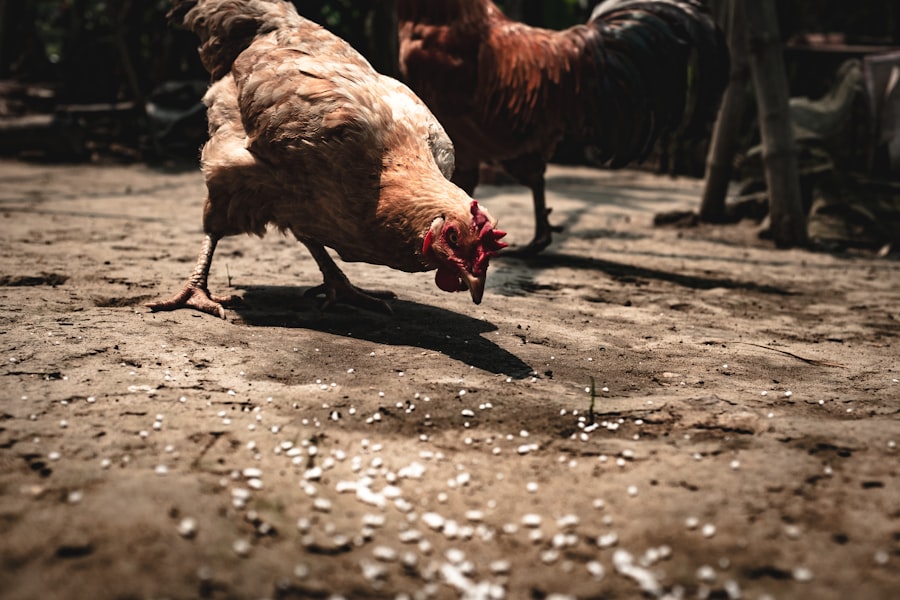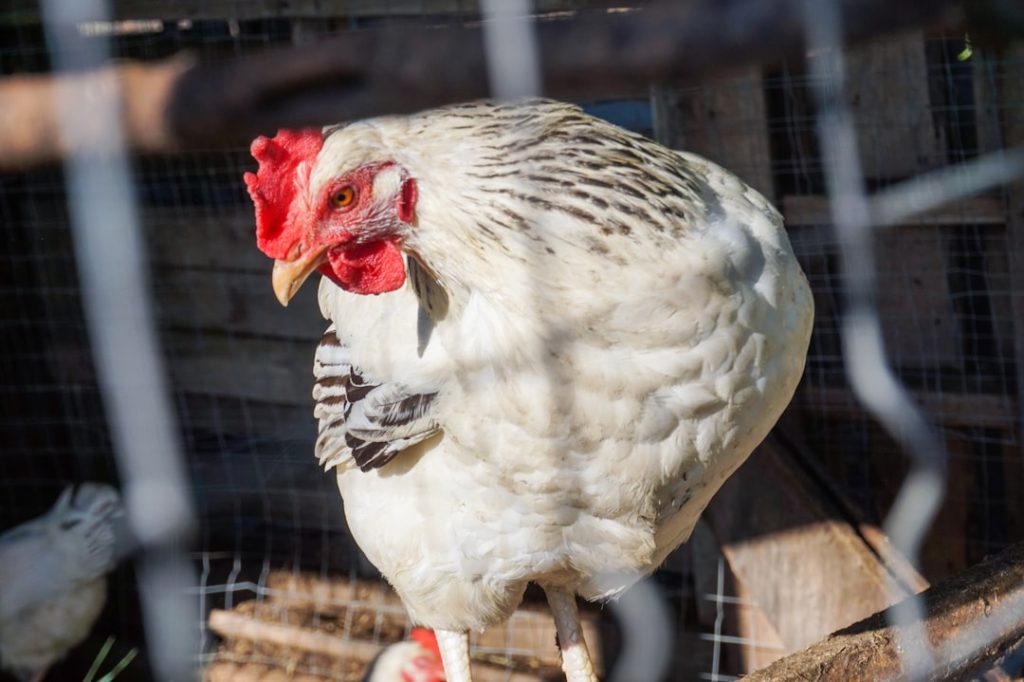Chicken keeping is a popular and beneficial activity suitable for individuals of various ages and living environments. This practice offers several advantages, including a supply of fresh eggs, natural pest control, and an opportunity to connect with nature. Chickens are generally low-maintenance animals that can be integrated into many households.
Additionally, raising chickens can serve as an educational tool for children, teaching them about responsibility and natural life cycles. There are numerous chicken breeds available, each possessing distinct characteristics. Some breeds are renowned for their egg production, while others are valued for meat production or aesthetic qualities.
Prior to embarking on chicken keeping, it is essential to conduct thorough research and acquire a comprehensive understanding of chicken care fundamentals. This includes knowledge of breed selection, appropriate coop and run construction, proper nutrition and care practices, and maintaining chicken health. With adequate preparation and knowledge, chicken keeping can be a rewarding endeavor for individuals and families alike.
Table of Contents
- 1 Choosing the Right Breed of Chickens
- 2 Building a Coop and Run for Your Chickens
- 3 Feeding and Caring for Your Chickens
- 4 Keeping Your Chickens Healthy
- 5 Collecting and Using Chicken Eggs
- 6 Troubleshooting Common Chicken-Keeping Issues
- 7 FAQs
- 7.1 What does it mean to keep your chickens fiddler?
- 7.2 What are some important factors to consider when keeping chickens fiddler?
- 7.3 How can I provide a secure coop and run for my chickens?
- 7.4 What should I feed my chickens to keep them fiddler?
- 7.5 How often should I perform health checks on my chickens?
Key Takeaways
- Keeping chickens can be a rewarding and enjoyable hobby for those with the space and time to care for them.
- When choosing a breed of chickens, consider factors such as egg production, temperament, and climate adaptability.
- Building a secure and comfortable coop and run is essential for the well-being of your chickens.
- Providing a balanced diet, clean water, and regular health checks are crucial for the overall care of your chickens.
- Regularly monitoring for signs of illness, practicing good hygiene, and providing proper shelter can help keep your chickens healthy.
Choosing the Right Breed of Chickens
Defining Your Purpose
First and foremost, it’s essential to determine the primary reason for keeping chickens. Are you looking to raise chickens for their eggs, meat, or as beloved pets? Different breeds excel in various areas, so it’s crucial to choose a breed that aligns with your goals. For instance, if egg production is your top priority, breeds like the Rhode Island Red, Leghorn, or Australorp are renowned for their exceptional egg-laying abilities. On the other hand, if you’re interested in raising chickens for meat, breeds like the Cornish Cross or Freedom Ranger might be a better fit.
Climate and Environment
In addition to considering the purpose of keeping chickens, it’s vital to think about the climate and environment in which you live. Some breeds are better suited to cold climates, while others thrive in warmer weather. The amount of space you have available for your chickens is also a crucial factor to consider. Some breeds are more suited to free-ranging, while others do well in confined spaces.
Breed Temperament and Characteristics
Finally, it’s essential to consider the temperament of the breed. Some breeds are known for being docile and friendly, while others can be more aggressive or flighty. By taking these factors into account, you can choose a breed of chicken that is well-suited to your needs and environment.
Building a Coop and Run for Your Chickens

Building a coop and run for your chickens is an essential part of keeping them safe, healthy, and happy. The coop is where your chickens will sleep and lay their eggs, while the run is where they will spend most of their time during the day. When building a coop and run, it’s important to consider the size of your flock, the climate in which you live, and any local regulations or restrictions on keeping chickens.
The coop should provide at least 2-3 square feet of space per chicken, with plenty of ventilation and natural light. It should also include roosting bars for the chickens to perch on at night, as well as nesting boxes for them to lay their eggs. The run should provide at least 10 square feet of space per chicken, with access to fresh air, sunlight, and protection from predators.
It’s also important to provide plenty of shade and places for the chickens to dust bathe and scratch for insects. When building a coop and run, it’s important to use high-quality materials that are durable and easy to clean. The coop should be predator-proof, with secure latches on doors and windows, as well as wire mesh to keep out predators like raccoons, foxes, and birds of prey.
By providing a safe and comfortable living environment for your chickens, you can ensure that they will be healthy and happy for years to come.
Feeding and Caring for Your Chickens
Feeding and caring for your chickens is an important part of keeping them healthy and productive. Chickens require a balanced diet that includes a mix of grains, protein, vitamins, and minerals. A good quality commercial feed is a great base for their diet but supplementing with kitchen scraps, fruits, vegetables, and even insects can provide additional nutrients and keep your chickens happy.
In addition to providing a nutritious diet, it’s important to ensure that your chickens have access to clean water at all times. Chickens can drink a surprising amount of water each day, especially during hot weather or when they are laying eggs. Make sure that their water source is clean and free from contaminants.
Caring for your chickens also involves providing them with a clean living environment. This means regularly cleaning their coop and run to remove droppings and soiled bedding. It’s also important to regularly check your chickens for signs of illness or injury and provide them with any necessary medical care.
By providing proper nutrition and care for your chickens, you can ensure that they will be healthy and productive members of your household.
Keeping Your Chickens Healthy
Keeping your chickens healthy is essential for their well-being and productivity. There are several key factors to consider when it comes to maintaining the health of your flock. First and foremost, it’s important to provide your chickens with a clean living environment.
This means regularly cleaning their coop and run to remove droppings and soiled bedding. It’s also important to provide them with fresh water at all times and ensure that their feed is free from mold or contaminants. In addition to providing a clean living environment, it’s important to monitor your chickens for signs of illness or injury.
Common signs of illness in chickens include lethargy, loss of appetite, abnormal droppings, respiratory issues, or changes in behavior. If you notice any of these signs, it’s important to isolate the affected chicken from the rest of the flock and seek veterinary care if necessary. Preventing parasites is also an important aspect of keeping your chickens healthy.
Regularly inspect your chickens for signs of external parasites like mites or lice, as well as internal parasites like worms. There are several natural remedies available for treating parasites in chickens, including diatomaceous earth and herbal supplements. By providing a clean living environment, monitoring for signs of illness or injury, and preventing parasites, you can ensure that your chickens will be healthy and productive members of your household.
Collecting and Using Chicken Eggs

Collecting Eggs from the Coop
Chickens typically lay their eggs in nesting boxes within the coop. It’s important to check the nesting boxes at least once a day to collect any eggs that have been laid. When collecting eggs, it’s important to handle them gently to avoid cracking or breaking the shells.
Storing and Preserving Fresh Eggs
It’s also important to store the eggs in a cool place until you’re ready to use them. Fresh eggs can be used in a wide variety of recipes, from omelets and quiches to cakes and cookies. They can also be preserved by pickling or freezing for later use.
The Benefits of Using Fresh Eggs
Using fresh eggs from your own chickens can add a delicious and nutritious element to your cooking while providing a sense of satisfaction knowing exactly where your food comes from.
Troubleshooting Common Chicken-Keeping Issues
While keeping chickens can be a rewarding experience, it’s not without its challenges. There are several common issues that chicken keepers may encounter, including predator attacks, egg-eating behavior, bullying within the flock, and health problems such as respiratory infections or egg binding. To prevent predator attacks, it’s important to secure the coop and run with sturdy fencing and locks on doors and windows.
You may also want to consider using motion-activated lights or sound devices to deter predators from approaching the coop. If you notice egg-eating behavior within your flock, it’s important to identify the culprit and take steps to prevent further egg-eating. This may involve providing additional nesting boxes or collecting eggs more frequently to prevent them from becoming targets.
Bullying within the flock can be addressed by providing plenty of space for the chickens to roam and establishing a pecking order within the flock. If necessary, you may need to separate aggressive birds from the rest of the flock until they learn to coexist peacefully. Finally, if you notice signs of illness or injury within your flock, it’s important to seek veterinary care as soon as possible.
Early intervention can help prevent the spread of disease within the flock and ensure that your chickens receive the care they need. By being proactive in addressing common chicken-keeping issues, you can ensure that your flock remains healthy and happy for years to come.
If you’re looking for more information on where to put your chicken coop, check out this article on the best location for your chicken coop. It provides helpful tips and advice on finding the perfect spot for your chickens to thrive.
FAQs
What does it mean to keep your chickens fiddler?
Keeping your chickens fiddler means providing them with a safe and comfortable environment, proper nutrition, and regular care to ensure their health and well-being.
What are some important factors to consider when keeping chickens fiddler?
Important factors to consider when keeping chickens fiddler include providing a secure coop and run, offering a balanced diet, ensuring access to clean water, and providing regular health checks and parasite control.
How can I provide a secure coop and run for my chickens?
To provide a secure coop and run for your chickens, make sure the fencing is sturdy and predator-proof, provide adequate space for the number of chickens you have, and provide shelter from the elements.
What should I feed my chickens to keep them fiddler?
To keep your chickens fiddler, feed them a balanced diet that includes a good quality commercial feed, fresh fruits and vegetables, and access to grit and calcium supplements.
How often should I perform health checks on my chickens?
Perform health checks on your chickens regularly, at least once a week, to check for any signs of illness or injury. Additionally, schedule regular check-ups with a veterinarian experienced in poultry care.
Meet Walter, the feathered-friend fanatic of Florida! Nestled in the sunshine state, Walter struts through life with his feathered companions, clucking his way to happiness. With a coop that’s fancier than a five-star hotel, he’s the Don Juan of the chicken world. When he’s not teaching his hens to do the cha-cha, you’ll find him in a heated debate with his prized rooster, Sir Clucks-a-Lot. Walter’s poultry passion is no yolk; he’s the sunny-side-up guy you never knew you needed in your flock of friends!







